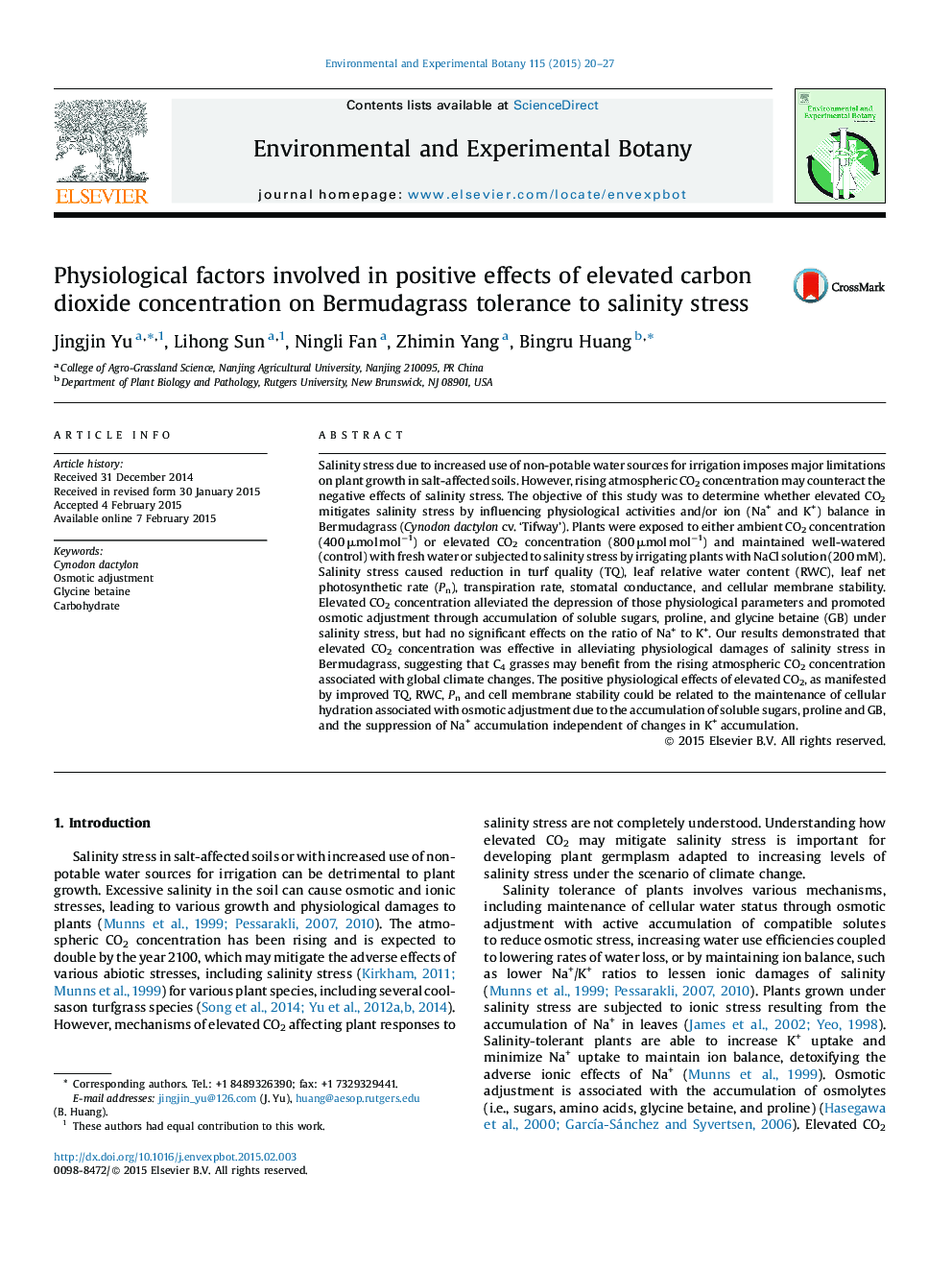| Article ID | Journal | Published Year | Pages | File Type |
|---|---|---|---|---|
| 4554231 | Environmental and Experimental Botany | 2015 | 8 Pages |
•Elevated CO2 concentration was effective in alleviating physiological damages of salinity stress in Bermudagrass.•The positive effects of elevated CO2 was related to enhanced osmotic adjustment and suppression of Na+ accumulation.•Enhanced osmotic adjustment was associated with the accumulation of soluble sugars, proline and glycine betaine.
Salinity stress due to increased use of non-potable water sources for irrigation imposes major limitations on plant growth in salt-affected soils. However, rising atmospheric CO2 concentration may counteract the negative effects of salinity stress. The objective of this study was to determine whether elevated CO2 mitigates salinity stress by influencing physiological activities and/or ion (Na+ and K+) balance in Bermudagrass (Cynodon dactylon cv. ‘Tifway’). Plants were exposed to either ambient CO2 concentration (400 μmol mol−1) or elevated CO2 concentration (800 μmol mol−1) and maintained well-watered (control) with fresh water or subjected to salinity stress by irrigating plants with NaCl solution (200 mM). Salinity stress caused reduction in turf quality (TQ), leaf relative water content (RWC), leaf net photosynthetic rate (Pn), transpiration rate, stomatal conductance, and cellular membrane stability. Elevated CO2 concentration alleviated the depression of those physiological parameters and promoted osmotic adjustment through accumulation of soluble sugars, proline, and glycine betaine (GB) under salinity stress, but had no significant effects on the ratio of Na+ to K+. Our results demonstrated that elevated CO2 concentration was effective in alleviating physiological damages of salinity stress in Bermudagrass, suggesting that C4 grasses may benefit from the rising atmospheric CO2 concentration associated with global climate changes. The positive physiological effects of elevated CO2, as manifested by improved TQ, RWC, Pn and cell membrane stability could be related to the maintenance of cellular hydration associated with osmotic adjustment due to the accumulation of soluble sugars, proline and GB, and the suppression of Na+ accumulation independent of changes in K+ accumulation.
